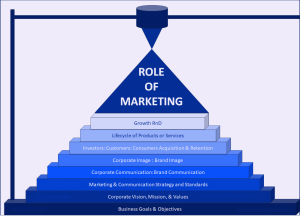important role for business marketing
important role for business marketing Discover the role of social media in online marketing success . Learn how platforms like Instagram, TikTok, and LinkedIn drive engagement, traffic, and sales in 2025.
⸻
Introduction
Social media has transformed the way businesses connect with customers. In the past, online marketing relied heavily on websites and search engines, but today social platforms play a crucial role in building brand visibility and trust. The role of social media in online marketing goes beyond posting content—it’s about creating meaningful interactions, generating leads, and driving measurable results.
In this article, we’ll explore how social media contributes to modern online marketing success and the strategies businesses can use to thrive in 2025.
⸻
1. Building Brand Awareness
Social media platforms are the most effective tools for building brand recognition. Billions of users scroll through apps like Instagram, TikTok, Facebook, and LinkedIn every day. A strong presence on these platforms ensures that businesses stay visible and relevant to their target audience.
Tip: Consistency is key. Posting regularly with a clear brand voice strengthens recognition.
⸻
2. Driving Website Traffic
One of the main benefits of social media in online marketing is its ability to drive traffic to websites. By sharing blog articles, product updates, or promotional offers with clickable links, businesses can convert followers into website visitors—and eventually customers.
⸻
3. Enhancing Customer Engagement
Social media is not just about broadcasting; it’s about engaging. Likes, comments, shares, and direct messages give businesses real-time insights into customer opinions. Engaging directly with customers builds stronger relationships and brand loyalty.
⸻
4. Supporting Content Marketing
Content marketing and social media work hand-in-hand. High-quality blogs, videos, and infographics gain exposure when shared across platforms. Social media also extends the lifespan of content by reaching wider audiences beyond organic search results.
⸻
5. Boosting Lead Generation
Social media platforms are powerful lead generation tools. Facebook Ads, Instagram lead forms, and LinkedIn campaigns allow businesses to collect customer data directly. This makes the role of social media in online marketing critical for nurturing leads and converting them into paying customers.
⸻
6. Expanding Through Paid Advertising
Paid social media advertising has become a necessity in 2025. With precise targeting based on demographics, interests, and behavior, small and large businesses can reach their ideal audience at a fraction of traditional advertising costs. Retargeting campaigns also help re-engage users who previously interacted with a brand.
⸻
7. Leveraging Influencer Marketing
Influencers hold massive power on platforms like Instagram and TikTok. Partnering with influencers—especially micro-influencers—can bring authenticity and trust to your brand. Customers are more likely to trust recommendations from people they follow than from brand ads.
⸻
8. Improving Customer Service
Many customers now expect brands to respond directly on social media. Quick replies to questions or complaints via direct messages or comments demonstrate strong customer service. This responsiveness improves reputation and keeps customers satisfied.
⸻
9. Gathering Market Insights
Social media is a goldmine of consumer insights. Monitoring hashtags, trends, and competitor activities reveals valuable information about what customers want. Tools like Facebook Insights and Twitter Analytics help businesses adapt their strategies based on data.
⸻
10. Building Community and Loyalty
The ultimate role of social media in online marketing is building communities.
Brands that create groups, forums, or live events foster deeper connections with their audience. This sense of community encourages repeat purchases and word-of-mouth marketing.
⸻
Conclusion
The role of social media in online marketing has never been more important. It enables businesses to build brand awareness, engage directly with customers, generate leads, and drive measurable growth. In 2025, companies that integrate social media into their online marketing strategies will enjoy stronger customer relationships, increased sales, and long-term success.
To stay ahead, businesses must not only post content but also listen, engage, and adapt to the ever-changing digital landscape.

